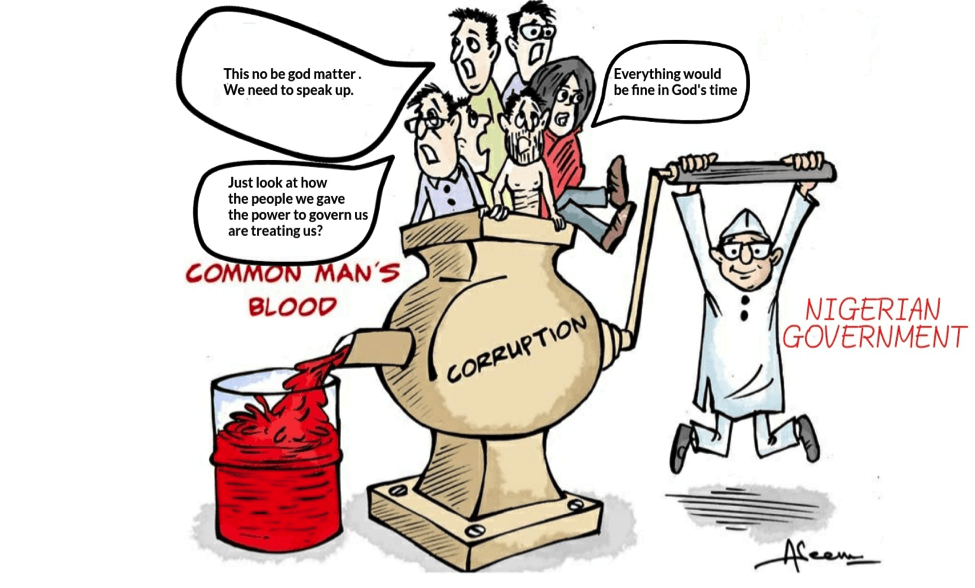
Contrary to what some analysts have recently suggested, endemic corruption in Nigeria has no genetic foundation, but it is rather a manifestation of several “social norms” that make sharp practices an acceptable way of life.
Therefore, an average citizen sees regular acts of misconduct, especially giving and soliciting bribes, as the rule rather than the exception, a worrisome dimension that now requires integration of behavioural lessons and strategic advocacy to address.
This is contained in a new report that highlights the need for a new approach on corruption in Nigeria. The report was launched Wednesday in Abuja by Chatham House, a British public policy think-tank.
The report, titled: “Collective Action on Corruption in Nigeria: A Social Norms Approach to Connecting Society and Institutions,” drew the attention of public administrators to behavioural economics and social psychology aspect of corruption.
“Understanding the contextual meanings, norms and networks that influence individual behaviour can support policymakers in better addressing how these social frameworks encourage, reinforce or dissuade certain patterns of corrupt behaviour,” the report said. “This understanding is critical to designing innovative and effective policy interventions and messages to curb corruption.”
The paper, authored by Raj Patel, a social norms consultant at the University of Pennsylvania, and Leena Hoffmann, an associate fellow of the Africa Program at Chatham House, with support from seven Nigerian scholars and the National Bureau of Statistics, also contained the outcome of a corruption perception survey conducted in 4,162 Nigerian households.
Over the past 18 months, the experts sampled some of the most pervasive forms of corruption in the country, including bribing police officers at checkpoints and paying to access government-funded healthcare facility.
Respondents expressed strong disproval for traffic police to ask for or accept bribes at checkpoints rather than following the official channel.
Yet, many Nigerians, on a daily basis, pay reduced penalties to compromise police officers in a bid to circumvent the often cumbersome formal process to resolving road traffic violations.
Ms. Hoffmann said “Corruption is not in Nigerians’ DNA,” noting that it’s only prevalent and stubborn because it had become the standard rule under which citizens sustain themselves.
“Disaproval of a practice, and the social consequences of failing to adhere to one’s community’s expectations, such as gossip, public shaming, or loss of credibility and status, are usually a powerful influence on the choices people make,” the report said. “Equally powerful are the approval, social respectability and esteem attached to behaviour that is evaluated within one’s community as being right or acceptable.”
The culture explains why an estimated $582 billion was lost through illicit financial flows between 1960 and 2014 with little or no outrage from the citizens, Chatham House said.
Amongst the policy approaches the report suggested include, making fines settlement mechanism user-friendly, online and mobile; reducing official fines to discourage bribes to officials; and waging a sustained campaign against corruption by highlighting its cost to the society.
While the experts acknowlege existential challenges in curbing corruption in Nigeria, they also see a bright spot in Nigerians’ willingness to embrace gradual attitudinal changes.
“If the environment or options change, behaviour will hange,” the report said.
Speaking at the presentation, which is also slated to hold in Lagos and a few other states in the coming days, British High Commissioner to Nigeria, Paul Arkwright, stated that corruption can take a debilitating toll on the society.
“Corruption fuels inequality, holds back development and it is a threat to national development of countries,” Mr. Arkwright said.
But the envoy expressed confidence in the ability of Nigerians to conquer the menace in the near future.
Attahiru Jega, a former chairman of the Independent National Electoral Commission, and Ibrahim Magu, acting-chairman of the Economic and Financial Crimes Commission, were amongst the dignitaries present at the launch, which took place at Sheraton Hotel.


Be the first to comment